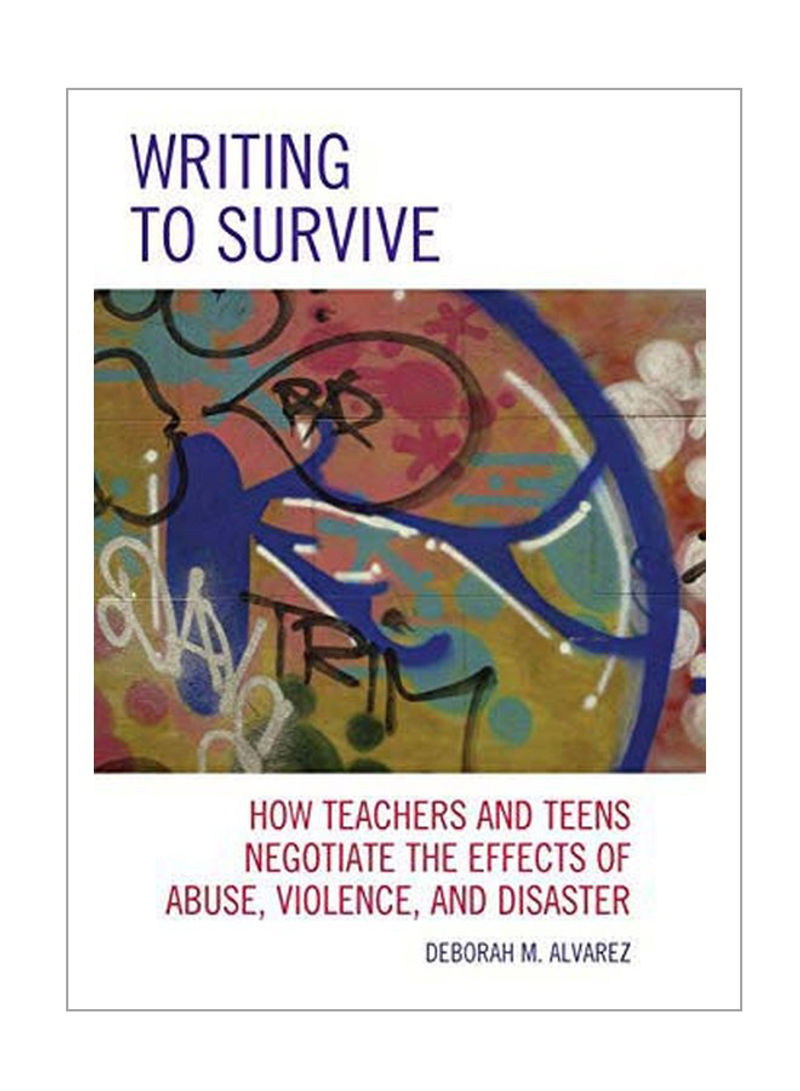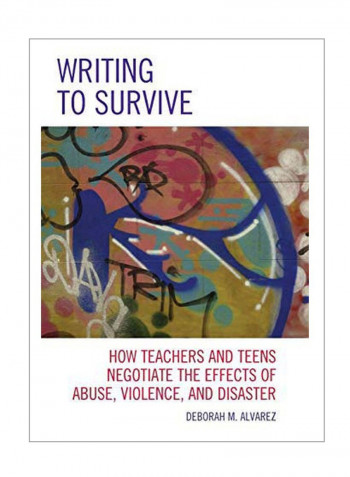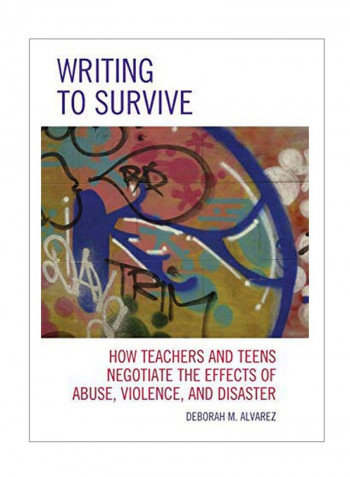Writing To Survive : How Teachers And Teens Negotiate The Effects Of Abuse, Violence, And Disaster Hardcover
Recommend
Sort by
Rating
Date
Specifications
Author 1
Deborah M. Alvarez
Book Description
This ethnographic research investigates how adolescents use writing. Deborah M. Alvarez uncovers the hidden abuses and violence that adolescents bore with each school day. In two different research sites, the author follows adolescents through their academic and personal lives to discover how they use writing only to uncover the impact the public and private violence had upon their ability to learn. The author details the writing classroom practices; assignments; and how adolescents adapt, reconstruct and appropriate the lessons of the classroom for their purpose and needs. For the adolescents in the book, writing was a way to address the stresses that plagued the adolescents each day, especially when they had no other way to communicate or tell about their lived experiences. Alvarez outlines an alternative Expressivist plan for teaching writing to adolescents. This writing program builds upon the evidence from the case studies, brain theory and research on traumatic stresses to offer teachers and thereby their students a more effective way to teach writing with greater impact for those who need it most.
ISBN-13
9781607097839
Language
English
Publisher
Rowman And Littlefield
Publication Date
16 Feb 2011
Number of Pages
262
About the Author
Deborah M. Alvarez began her teaching career in Kansas as secondary English language arts teacher. After receiving her doctorate from the University of Wisconsin-Madison in Composition Studies, Deborah now teaches methods and writing courses to future teachers at the University of Delaware while continuing her research in the effects of natural disasters on teacher instruction and adolescent writing.
Editorial Review
In her compelling book, Writing to Survive, Deborah Alvarez demonstrates that high school students not only can but do use writing to navigate the confusing, dangerous, and emotionally and physically challenging experiences that many adolescents endure. Professor Alvarez understands that affective responses that are connected to thinking through language cannot be ignored in the educational process if we want that process to be successful. As she demonstrates with the voices of the young people she researched, the more desperate the situation, the more students need to empower themselves through creative uses of language. Every high school teacher should read this book. -- Marian Mesrobian MacCurdy, author of The Mind's Eye: Image and Memory in Writing About Trauma; co-editor of Writing and Healing: Toward an Informe, author of The Mind's Eye: Image and Memory in Writing About Trauma; co-editor of Writing and Healing: Toward an Informed Practice Debra Alvarez's Writing to Survive is a stellar and timely book. In this complex age of radical change it is critical to enable students to survive such 'storms' as we have not yet imagined. Professor Alvarez makes a case for the value of 'expressivist writing' in English classrooms, demonstrating what happens when we use the English classroom productively to help our students not only to survive-but to thrive-by meeting the challenges of an uncertain world-in sum, teaching students to confront increasingly frequent personal, natural, and national disasters with appropriate written tools for expression. -- Gabriele Rico, Ph.D., professor of English and comparative literature and creative arts, San Jose State University; author of Writing the Natural W Grounded in qualitative methods dominated by ethnography, case study, and poststructuralist interpretive styles, Alvarez (Univ. of Delaware) shares her research on five traumatized adolescents and their compensatory literacy strategies in their English language high school classes. Alvarez states the thesis of the book is that "the private violences and public disasters [Katrina] affect adolescents' ability to learn, and the trauma and stresses alter the ways in which adolescents construct literacy--called compensatory strategies." After a detailed description of literacy, writing, compensatory strategies, adolescent crises, social constructivism, modern brain theory, trauma, and her research design, Alvarez presents five case studies on the power of writing for adolescents traumatized by personal violence or a natural disaster. In the final chapter, Alvarez proposes a writing pedagogy, neo-expressivist, for all adolescents. The appendixes present additional details from the case studies, a class schedule, writing from three of the adolescents, a persuasive speech assessment, a hurricane information survey, and an English IV literacy portfolio project. The extensive bibliography clarifies works cited in the book. * CHOICE *



